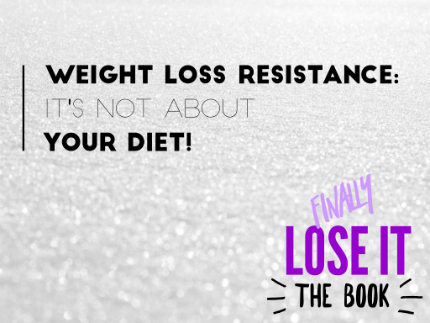Have you ever felt that trying to lose weight is overwhelming or that the process is confusing? I’ve learned that achieving wellness takes a deep understanding of what I call the diet-free dials: diet, lifestyle, and hormones. These dials need to be in just the right position to experience effortless weight loss and wellness. But that does not mean we need to work on adjusting all of them at the same time. Life-change stress is still stress, so we’ll break down the changes into manageable pieces together. Let’s explore what these dials are together.
Diet (The foods, not the mentality)
When it comes down to it, no one cookie cutter diet plan will work for everyone because these types of plans aren’t considering one’s lifestyle, personal health challenges and hormones. You’ll know this if you’ve tried any of the generic diets such as Weight Watchers or the Zone diet (no offense to them!). You might see short-term results, but then you know that you’ll regain all the weight (and maybe more) once you stop.
It’s important that the types of food you eat are flexible and fit into your life. When tackling weight loss resistance specifically, need to know how to customize your diet to your stress levels, digestion and hormones. For the most part, you want to focus on a high fiber, lower carbohydrate diet with lots of vegetables with healthy protein and fat sources. Obviously there are many adaptations that need to occur to personalize this plan, for more info on that see my book, Finally Lose It.
Top 2 tips:
- Add fiber into a morning smoothie by adding 2 tbsp ground flax or chia seed.
- Swap your morning bowl of cereal with eggs on a bed of sautéed greens. This helps to lower your blood sugar and insulin.
Lifestyle
Stress and sleep are two of the biggest lifestyle factors to consider when addressing weight loss resistance. Stress and poor sleep will affect our metabolism and the hormones we’ll discuss below. When the hormone melatonin is increased, it signals the body to prepare for sleep. Melatonin production is impaired by blue light exposure and cortisol. Cortisol is our stress hormone and the two of them function like a teeter-totter, when one end is high, the other is low. When cortisol is elevated after a stressful day at work, a fight with a partner, or from blue light exposure, you may not only struggle to get to sleep, but also have a lower quality sleep. It’s important to know that the most important timeframe to sleep is between 11:00pm and 4:00am. With all that said, you can see how stress and sleep can impact each other and your overall well-being.
My top 2 tips:
- Add blue light filters to your laptop and smartphone (I use f.lux)
- Try moving your bedtime up by 15-minute intervals until you’re going to bed by 11:00pm the latest.
Hormones
When I talk about hormones, many women automatically assume I’m talking about estrogen. Little do they know that there are so many other hormones involved in weight regulation. The foods we eat, physical activity, and other hormones easily affect insulin, a hormone involved in blood sugar regulation and fat storage. A common aspect of weight loss resistance is insulin resistance, meaning the cells of our body are not shuttling glucose from the food we eat into the cells efficiently for energy. This affects how you store fat, how much you hold onto it and it also affects cravings and anxiety.
Another important hormone is leptin, which basically tells you that you have enough fat stored and that our body can use to lose. In the perfect world, our weight would magically regulate itself when you eat any healthy diet. Yet again, there are influences like chronic stress that hijack this process and cause leptin resistance – slowing your metabolism and increasing your appetite. When working properly our hormones work with us, but this is not the case for most women.
My top 2 tips:
- Enjoy low glycemic fruits like berries, which are also high in antioxidants to ensure you don’t spike your blood sugar. Pro tip: eat them with nuts and seeds to help blood sugar regulation even more.
- Aim to do resistance training 2x/week and include stress-relieving movement such as yoga and walks in nature. Both of these forms of physical activity help to target both insulin and leptin resistance.
Do you feel like your diet free dials are turned in the wrong direction?! You are not alone and I wrote this book just for you. Make sure to get your copy of Finally Lose It and stay tuned to the blog for more detailed information!

